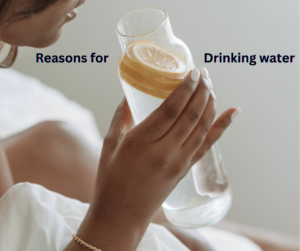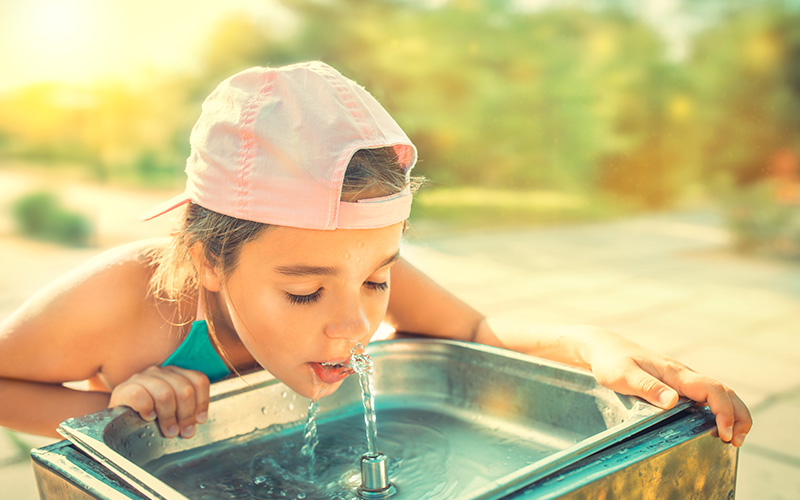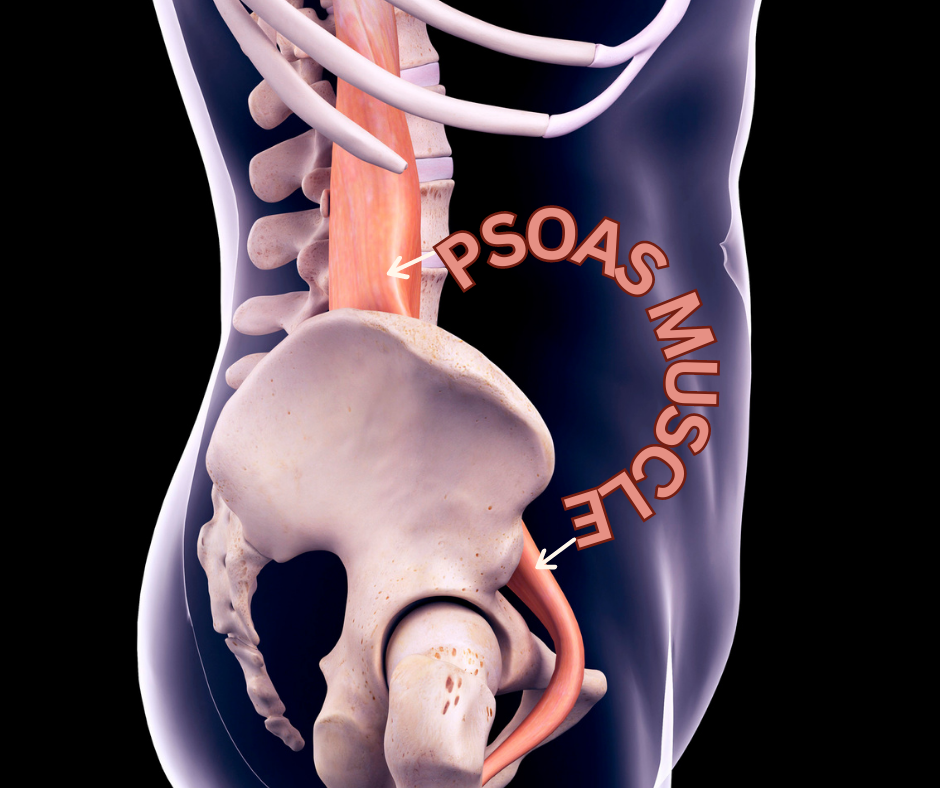This is why we need to drink water: Our bodies are estimated to be about 60 to 70% water. Blood is mostly water & our muscles, lungs & brain all contain a lot of water. Water makes up a majority of your body weight & is involved in many important functions. This includes flushing out waste from your body, regulating your body temperature & helping your brain function.
Why we need to drink water – it is needed to:
- Regulate body temperature
- Provide the means for nutrients to travel to all our organs, which is necessary for body function.
- Water also transports oxygen to our cells,
- Remove waste (through urine and bowel motions.)
- Best way to recharge the liver. In addition to causing several physical symptoms, dehydration can greatly affect liver function, especially the ability to detoxify blood.
- Protect our joints and organs.
- It is needed for digestion, absorption, circulation & excretion
- Helps the body metabolise stored fats (helps in weight loss and reducing cellulite)
- Improves the look of our hair, skin, eyes & muscle tone.
- Balances the PH in our body (It is important, as a lot of modern diseases can be helped by having the right PH & reducing acidity.)
- Drinking 8-10 cups of water is essential for your liver detoxification. It removes the toxins and flushes the liver tissues.

The body & why we need to drink water:
- Almost all of the body’s living cells need & depend on water to perform their functions.
- Carries nutritive elements to the cells and carries away waste materials & salts to the kidneys
- Serves as an important constituent of lubricants, helping to cushion the joints, internal organs, spinal cord & tissues
- Keeping body tissues such as the eyes, lungs & air passages moist
- Surrounding & protecting the foetus during pregnancy
- Is needed in each step of the process of converting food into energy & tissue.
- Digestive secretions are mostly water acting as a solvent for nutrients; in effect, water softens, dilutes & liquefies food in order to facilitate digestion.
- It also helps move food along the alimentary canal.
- Differences in the fluid concentration on either side of the intestinal wall facilitate the absorption process.
- A main component of saliva. Saliva also includes small amounts of electrolytes, mucus & enzymes. It’s essential for breaking down solid food and keeping your mouth healthy
- It improves blood oxygen circulation
- Aids in cognitive function
The body absorbs water through the stomach and gut. Water leaves the body through urine, sweat, and stool and at times, vomiting and diarrhoea.
How Much Water Should We Drink
The General rule is 8-10 glasses a day, which works out to be 2.5 – 3 Litres daily. That is the average sort of day, but there are exceptions to the rule where you might need to increase this amount of water during that day. It is important to balance the amount of water going in to the body with the amount of water being lost by the body. This is especially important for persons who are:
- Very young
- Elderly
- Ill with fever, vomiting or diarrhoea
- Taking medications that cause the body to lose water
- Exercising
- Living in hot, humid, dry or high altitude climates
- People who sweat a lot due to work
- People working in air conditioning (as it tends to dehydrate you)
- Travelling on a long airplane trip
Disclaimer: This content is reviewed periodically and is subject to change as new health information becomes available. The information provided is intended to be informative and educational and is not a replacement for professional medical evaluation, advice, diagnosis or treatment by a health care professional.









